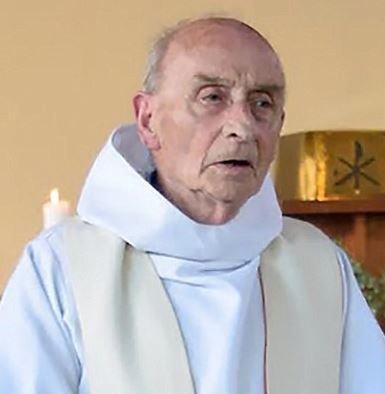High price paid by Fr Hamel
 What makes the gruesome killing of Father Jacques Hamel all the more frightening is the impossibility of preventing such crimes. An elderly priest saying morning Mass for a small weekday congregation could hardly be more vulnerable. His quiet Normandy town of Saint-Etienne-du-Rouvray would never stand out as high risk. After previous outrages by terrorists claiming allegiance to Islamic State (IS) such as the attack in Nice earlier this month, French security measures were subject to minute scrutiny by politicians and the media, and by the security agencies themselves, to pinpoint mistakes and learn lessons. In this case, however, that is frustratingly hard to do. Although at least one of Father Hamel’s assassins was apparently known to the French security services, they must have hundreds of such suspects on their books, and it must be nigh impossible to watch them all effectively round the clock.
What makes the gruesome killing of Father Jacques Hamel all the more frightening is the impossibility of preventing such crimes. An elderly priest saying morning Mass for a small weekday congregation could hardly be more vulnerable. His quiet Normandy town of Saint-Etienne-du-Rouvray would never stand out as high risk. After previous outrages by terrorists claiming allegiance to Islamic State (IS) such as the attack in Nice earlier this month, French security measures were subject to minute scrutiny by politicians and the media, and by the security agencies themselves, to pinpoint mistakes and learn lessons. In this case, however, that is frustratingly hard to do. Although at least one of Father Hamel’s assassins was apparently known to the French security services, they must have hundreds of such suspects on their books, and it must be nigh impossible to watch them all effectively round the clock.
So it seems probable this 84-year-old curate was chosen by IS precisely for his vulnerability. Catholics have a particular sensitivity for those who suffer innocent death. That Father Hamel would have died defenceless within sight of a crucifix makes his murder all the more poignant and painful to contemplate. He paid the highest price that his vocation demands. Yet the thought of having to say Mass behind locked doors is repugnant. Most priests will prefer to face the risk.
Is there more they can do? Faced with atrocities of this kind, the usual response by Church leaders is to call for more dialogue. Yet the one thing that is sure about these so-called soldiers of so-called Islamic State is that they are not interested in, nor capable of, any kind of dialogue. Nevertheless dialogue, including building relationships across cultural boundaries, has a substantial role to play. Commentators on French community relations, including Cardinal Jean-Louis Tauran, president of the Pontifical Council for Interreligious Dialogue, have identified ignorance on both sides as a key factor that needs to be addressed.
A young Muslim, ignorant of his own faith and prey to radicalisation, may come to believe that Catholics are his sworn enemy. He may also be surrounded by other Muslims, less fanatical than he, who also have erroneous beliefs about Catholicism – that it has not changed since the medieval Crusades, for instance. They may know nothing about current Church teaching urging Catholics to respect members of other faiths, and to work together on shared projects for the common good. In such a climate, anti-Catholic fanaticism would not stand out as much as it should. It could go unchallenged. A person displaying it is unlikely to be reported to the authorities by those amongst whom he lives. Dialogue is about replacing false perceptions with true ones, and emphasising what is held in common. Effective communication with Muslims of goodwill may limit the impact of extremists.
The French Government has a large stake in improving community relations, and knows that the jihadists’ tactics are aimed at driving a wedge between sections of French society. The increasing popularity of Marine Le Pen’s Front National is an Islamist success story. Hence a political programme aimed at promoting national unity, preventing radicalisation and encouraging moderate Muslim leadership is all the more imperative. Ambivalence is not enough.


 Votes : 0
Votes : 0









